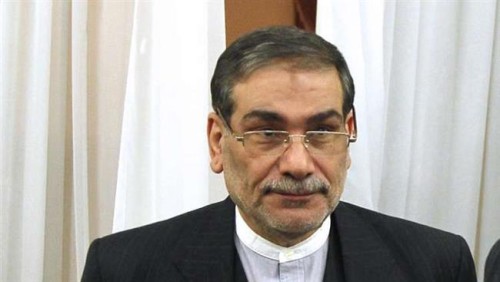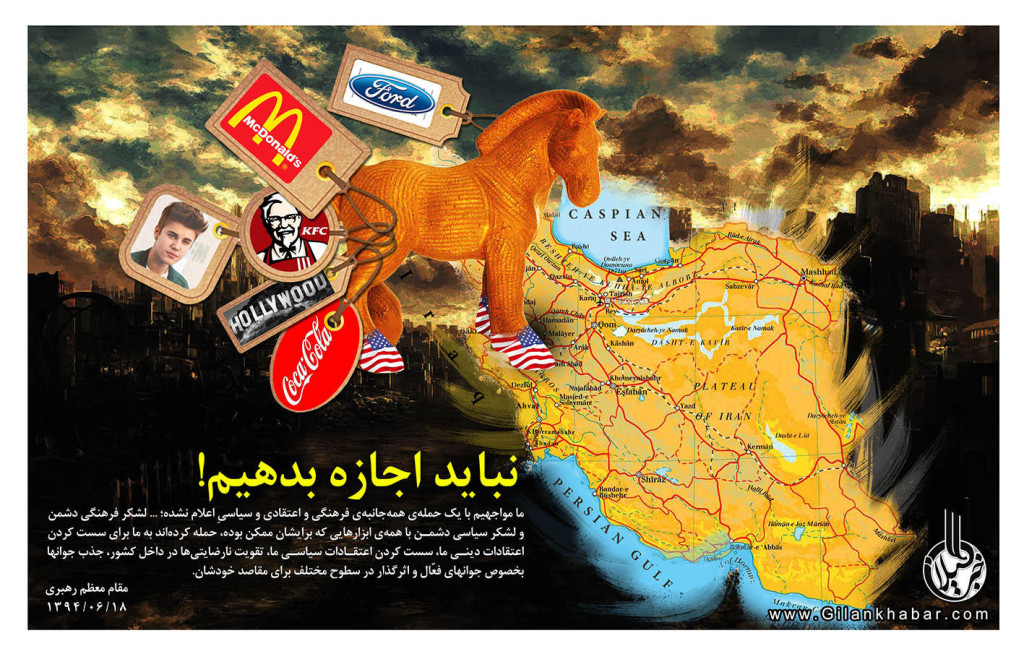PHOTO: Secretary of the Supreme National Security Council, Admiral Ali Shamkhani
LATEST
With the target date for implementation of the July 14 nuclear deal approaching, Iran’s regime is walking a tightrope over the necessary steps, putting verification — and thus lifting of US and European Union sanctions — in jeopardy.
The Secretary of the Supreme National Security Council, Admiral Ali Shamkhani, is the latest official to try and maneuver between the Rouhani Government and hardline critics who do not want the deal to be fulfilled.
Shamkhani said on State TV on Saturday night that the process of implementing nuclear deal is following “a certain timetable”. However, he noted that, while preparations have been made for “clearing nuclear wastes” in the Natanz and Fordow enrichment plants, no uranium centrifuges have been removed yet.
Under the Joint Comprehensive Plan of Action, Iran must reduce its stock of more than 19,000 centrifuges to just over 5,000, as well as shipping almost all its enriched uranium out of the country or diluting it to a level far removed from potential military use.
Last week, the head of the Atomic Energy Organization of Iran, Ali Akbar Salehi, said the process to take the centrifuges off-line had begun. The statement was immediately attacked by hardliners, who said the removal could only begin after the Supreme Leader’s “conditions” over the deal were met.
The next day, AEOI spokesman Behrouz Kamalvandi backed away and said no centrifuges had been taken out of operation.
The Rouhani Government had hoped for International Atomic Energy Agency verification of Iranian compliance with the JCPOA, including the reduction in centrifuges, by December 15 so the process for sanctions removal can begin. The Government faces serious issues with Iran’s troubled economy, including a large deficit in its budget for next year, if the timetable is delayed.
The Supreme Leader said on October 21, as he endorsed the JCPOA, that implementation was dependent on nine conditions. Foremost among these were statements by President Obama and the European Union that sanctions will be removed and will not be re-imposed.
Shamkhani tried to present a firm line on Saturday, without blocking implementation, by saying that Iran could “easily return to its desired point in case of any kind of violation” of the JCPOA. He effectively appealed to the EU by saying that “only Americans could be expected to violate the JCPOA because there has been no mention of doing so by the Europeans so far”.
The Admiral concluded, “Smart ways should be devised for proper implementation of the document in a way that would lead to enhance national solidarity.”
Speaking in Japan, the AEOI’s Salehi tried to maintain optimism, “The Islamic Republic of Iran has entered a new era of nuclear activities with a bright landscape after the JCPOA.”
US “Cultural Sedition”: KFC, Coca-Cola, Ford…and Canada’s Justin Bieber
An Iranian website depicts the Trojan Horse of US cultural infiltration trying to undermine the Islamic Republic — no surprises with the suspects of KFC, Coca-Cola, Hollywood, McDonald’s, and Ford, but Canada’s singing superstar Justin Bieber appears to have become an honorary American:
Iran’s hardliners, following a rhetorical path set by the Supreme Leader, have been warning that the US is trying to use the July 14 nuclear deal to subvert Iran’s political system, culture, and morality.
See Iran Daily, November 7: “We Must Build Walls to Prevent Western Influence and McDonald’s Diplomacy”


